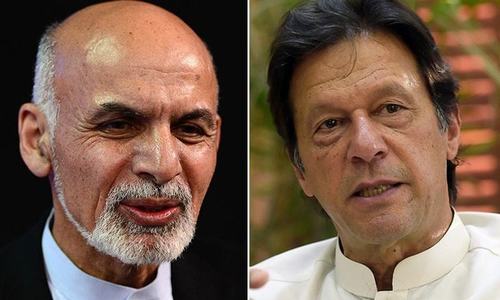Afghan President Ashraf Ghani declared a provisional three-month ceasefire with the Taliban in a televised broadcast on Sunday, but said the truce would hold only if the insurgents reciprocated.
The announcement followed a bloody week of fighting across Afghanistan which saw the Taliban launch a massive assault against the provincial capital Ghazni.
Anticipation had been mounting ahead of Ghani's speech following mixed signals from the presidential palace over whether the government would offer a fresh truce, following a brief, unprecedented one earlier this year.
“I once again announce a ceasefire from tomorrow until the prophet's birthday provided that the Taliban reciprocate,” said Ghani, referring to the Prophet Mohammed's birthday which Afghanistan celebrates on November 21.
Ghani said his administration removed “all obstacles” to peace with the announcement following consultations with religious scholars, political parties and civil society groups.
“We call on the leadership of the Taliban to welcome the wishes of Afghans for a long lasting and real peace, and we urge them to get ready for peace talks based on Islamic values and principles,” he said.
The president's announcement was immediately welcomed in neighbouring Pakistan, which has long been accused of fostering links with the Taliban's leadership and providing sanctuary to its fighters.
Read: Kabul told to look inwards for Ghazni attack causes
It was also welcomed by NATO secretary general Jens Stoltenberg, who tweeted: “I encourage the Taliban to demonstrate their concern for Afghans by respecting it.”
An earlier, three-day ceasefire over the Eid holiday in June — the first such truce in the country since the 2001 US invasion — saw thousands of insurgents pour into cities across Afghanistan, eating ice cream and posing for selfies with security forces.
It spurred hopes that a new path was opening for possible peace talks in the country to the end the nearly 17-year-old war, but violence has surged in the weeks since.
The days-long fight for Ghazni, which concluded on Wednesday killed hundreds and saw Taliban fighters ransack the provincial capital, torching buildings and destroying infrastructure.
That battle coincided with blistering attacks on government installations across the country. Analysts have suggested the Taliban were seeking to demonstrate strength ahead of any possible talks.
Ghani did not mention any cease in fighting with the Islamic State group, which has expanded since it first emerged in the region in 2014, or any of the other militant groups plaguing Afghanistan.
Afghan security forces, beset by killings, desertions and low morale, have taken staggering losses since US-led NATO combat forces pulled out at the end of 2014.
But it is ordinary Afghans who have taken the brunt of the violence in the grinding conflict, especially in Kabul, which the United Nations has said is the deadliest place for civilians in the country.














































